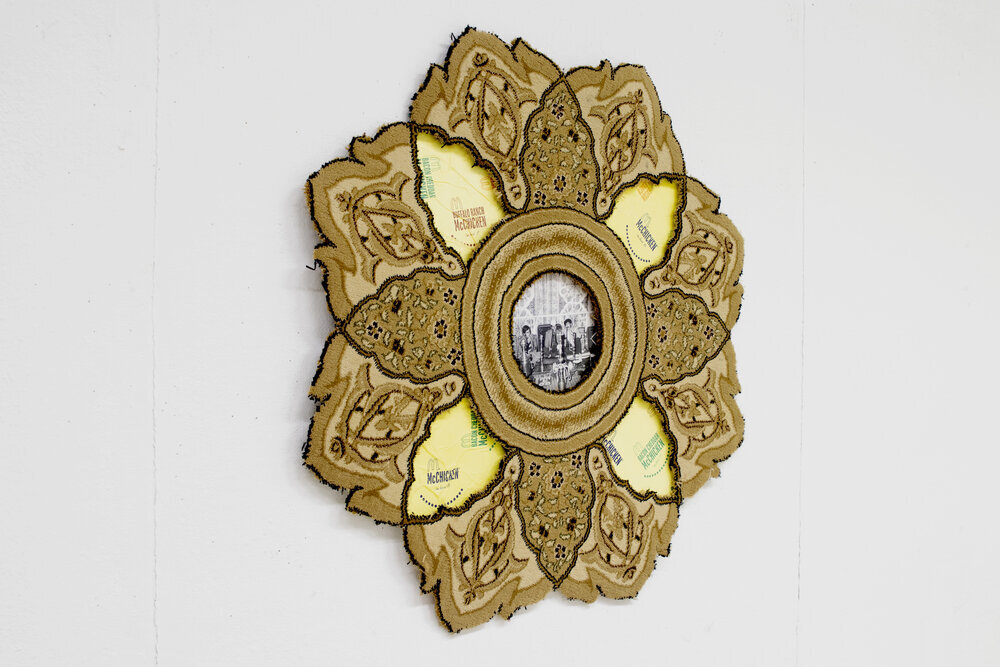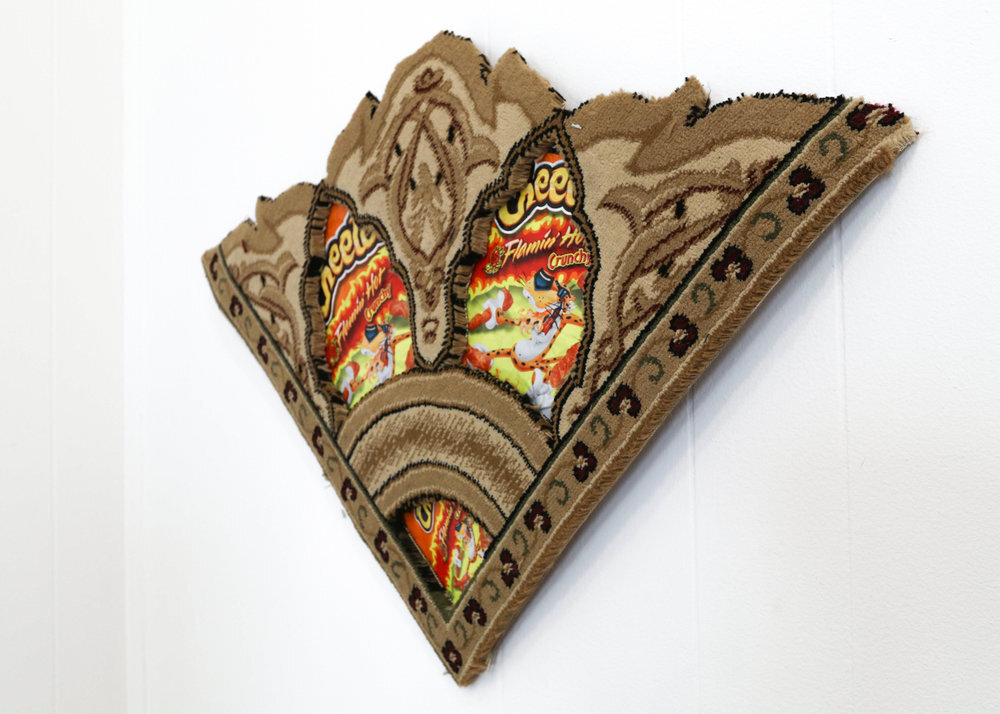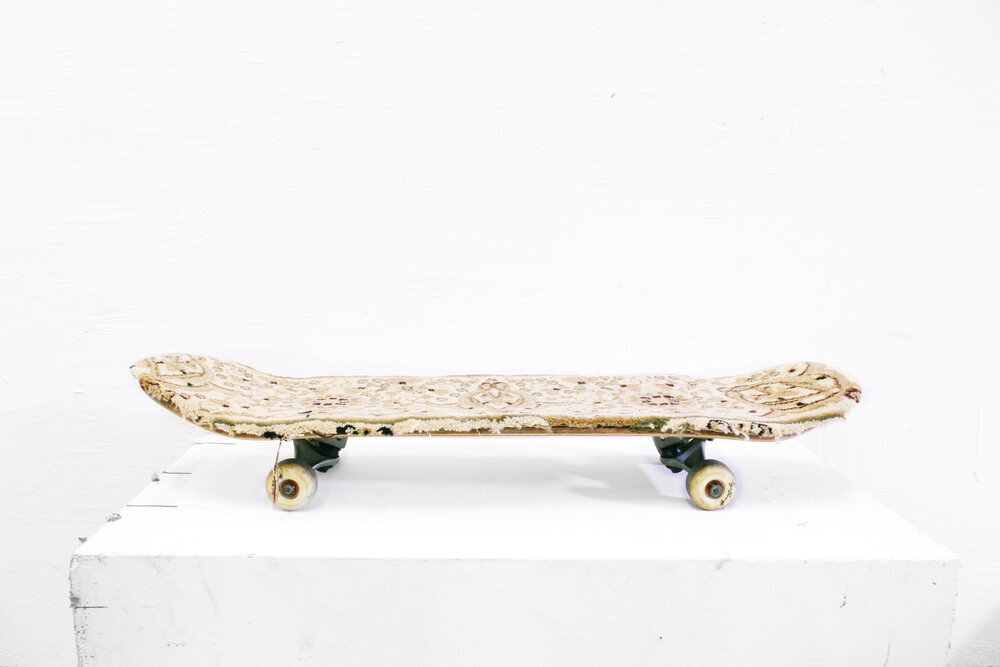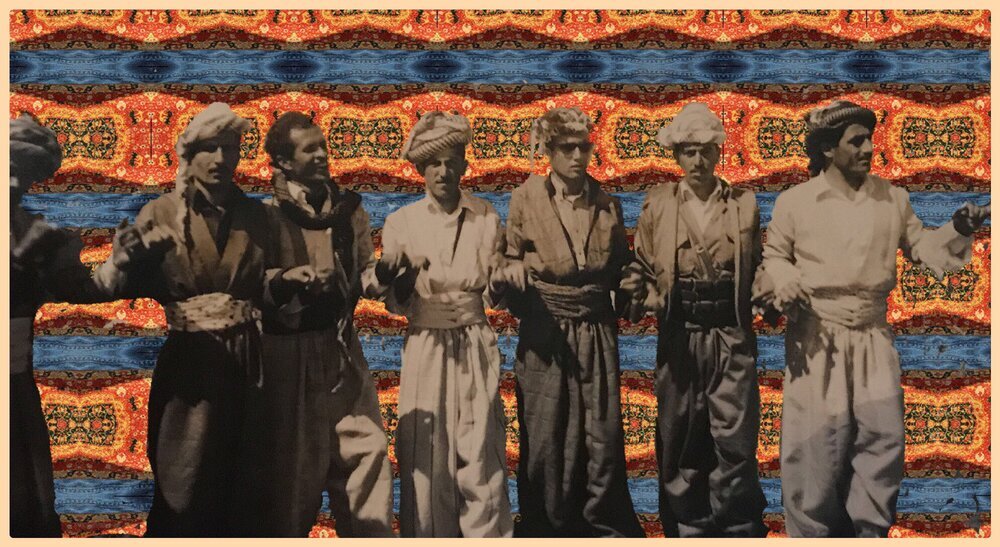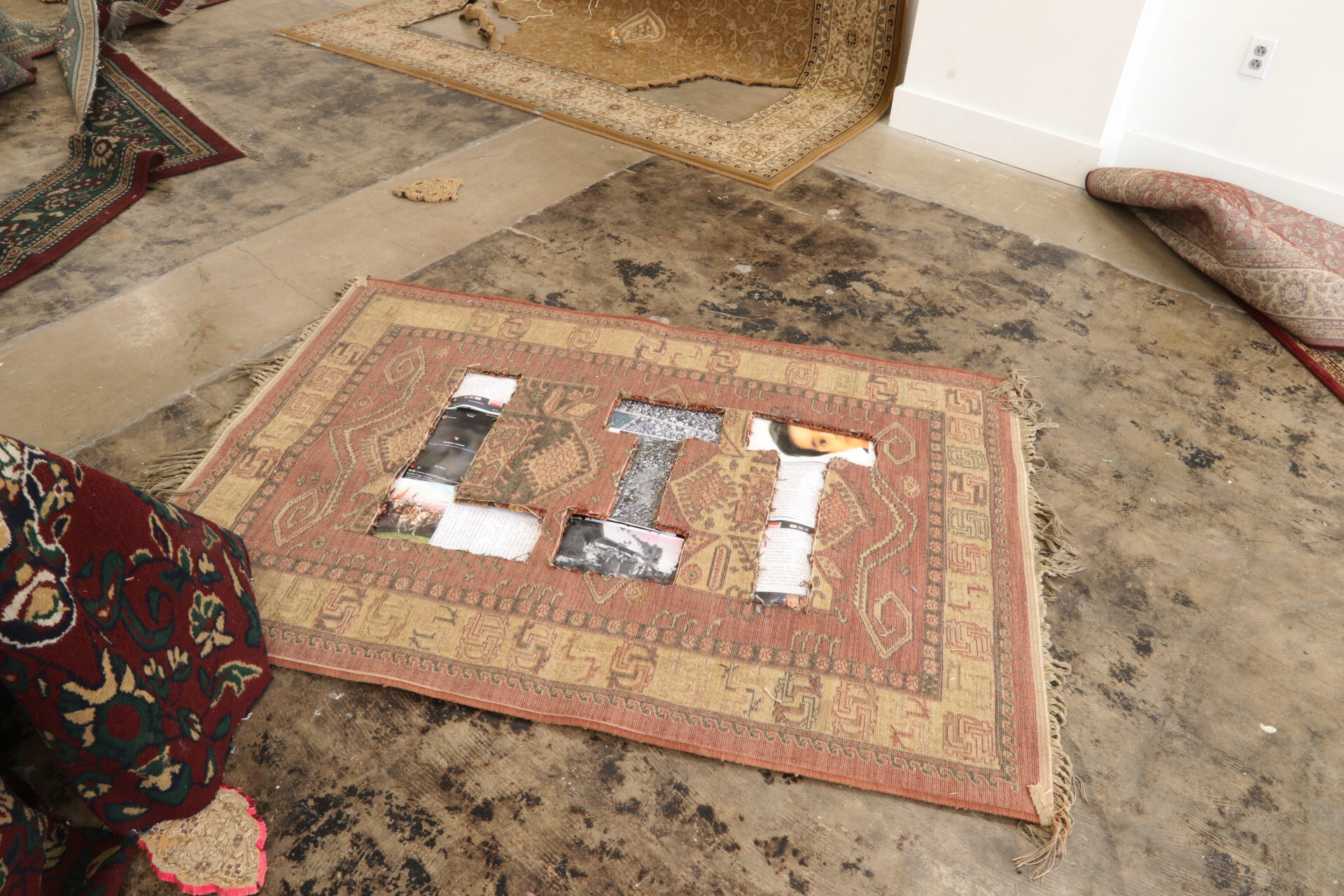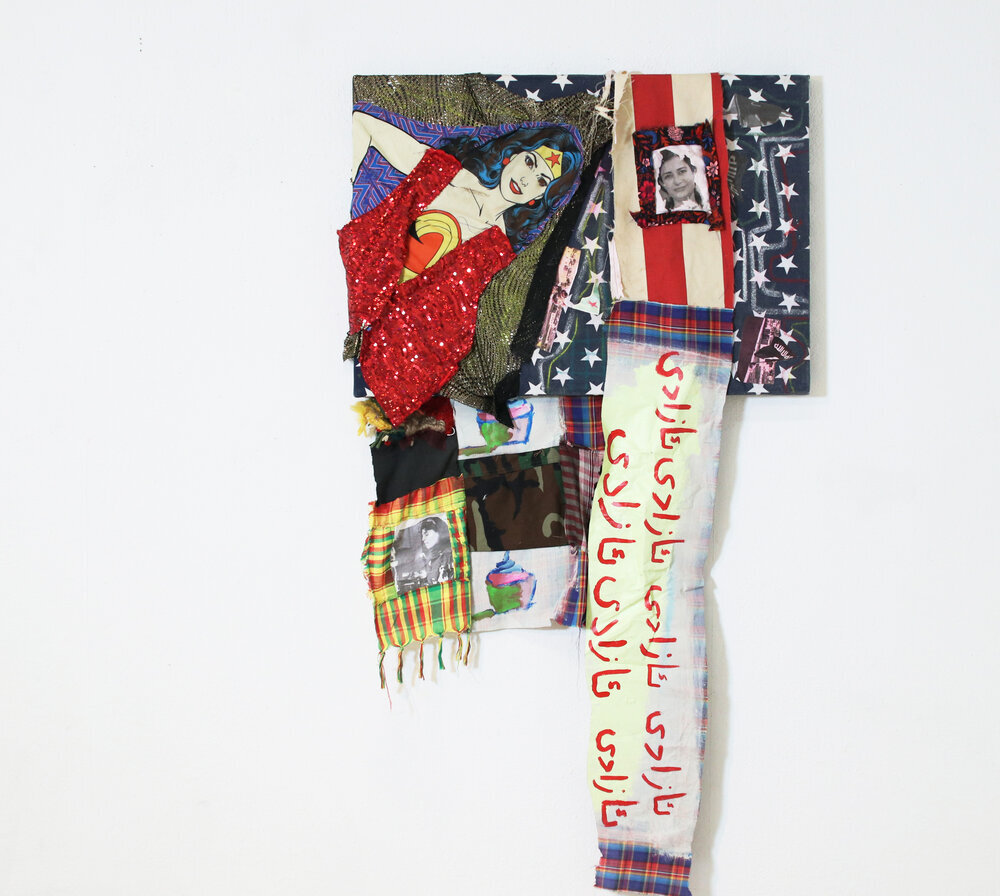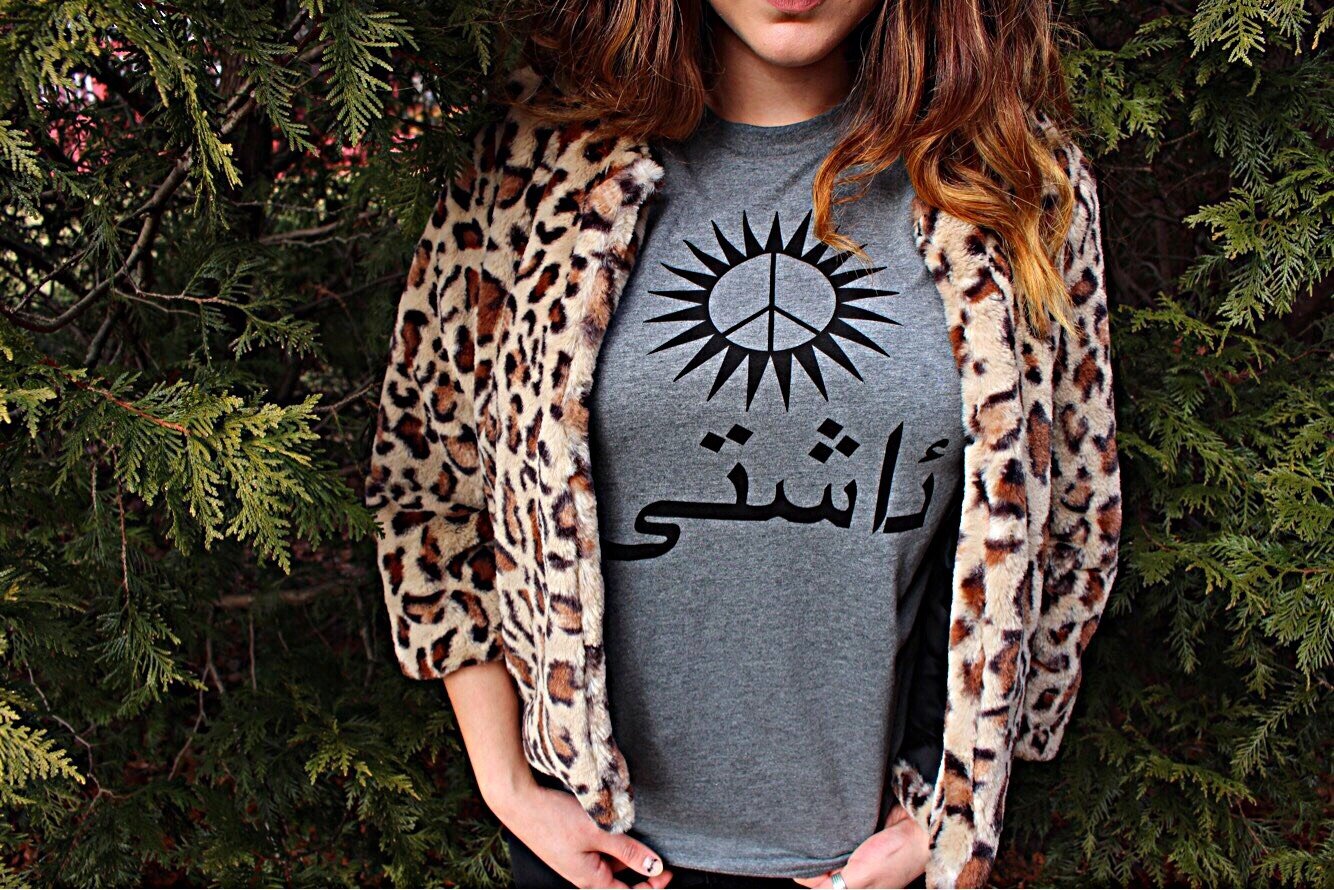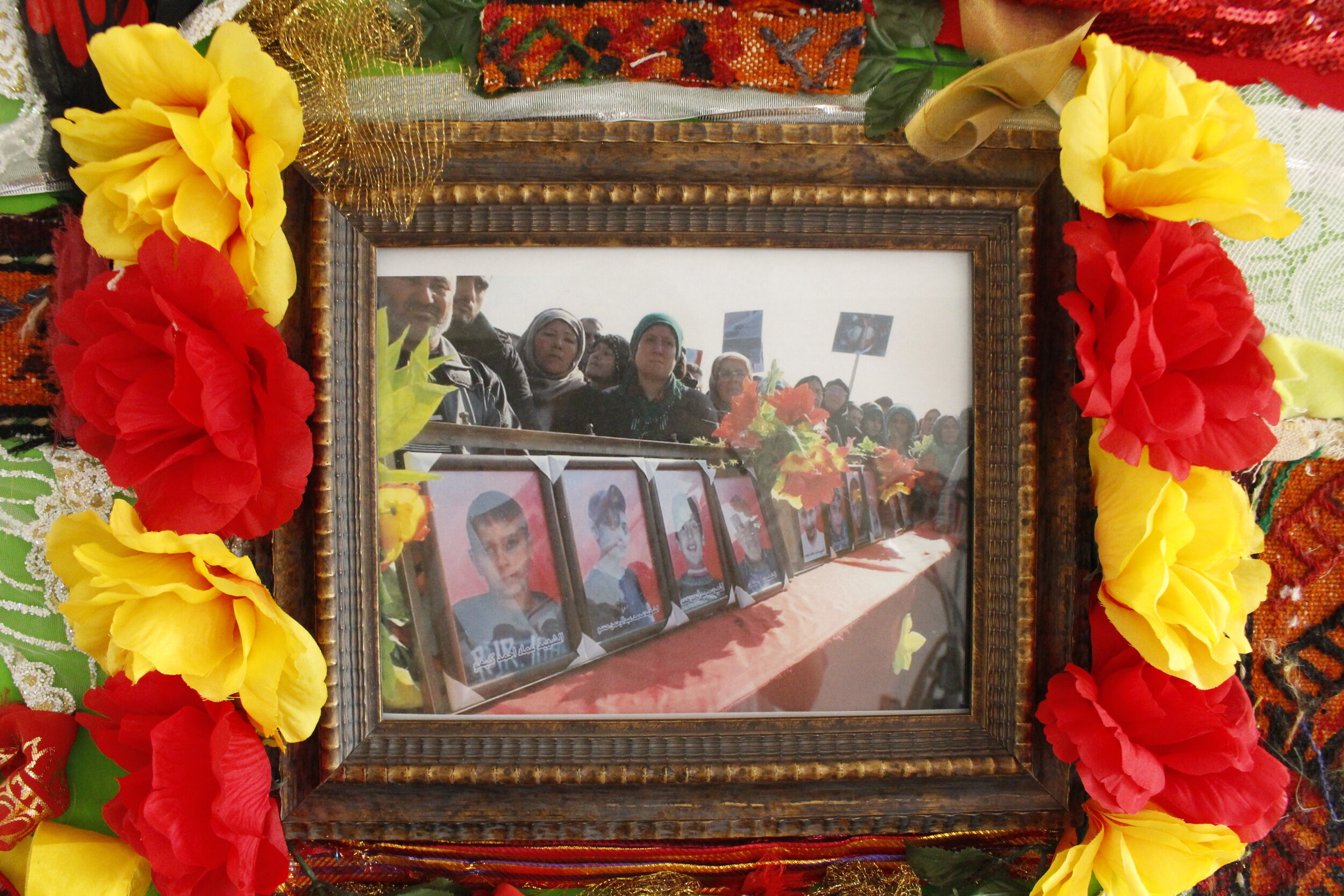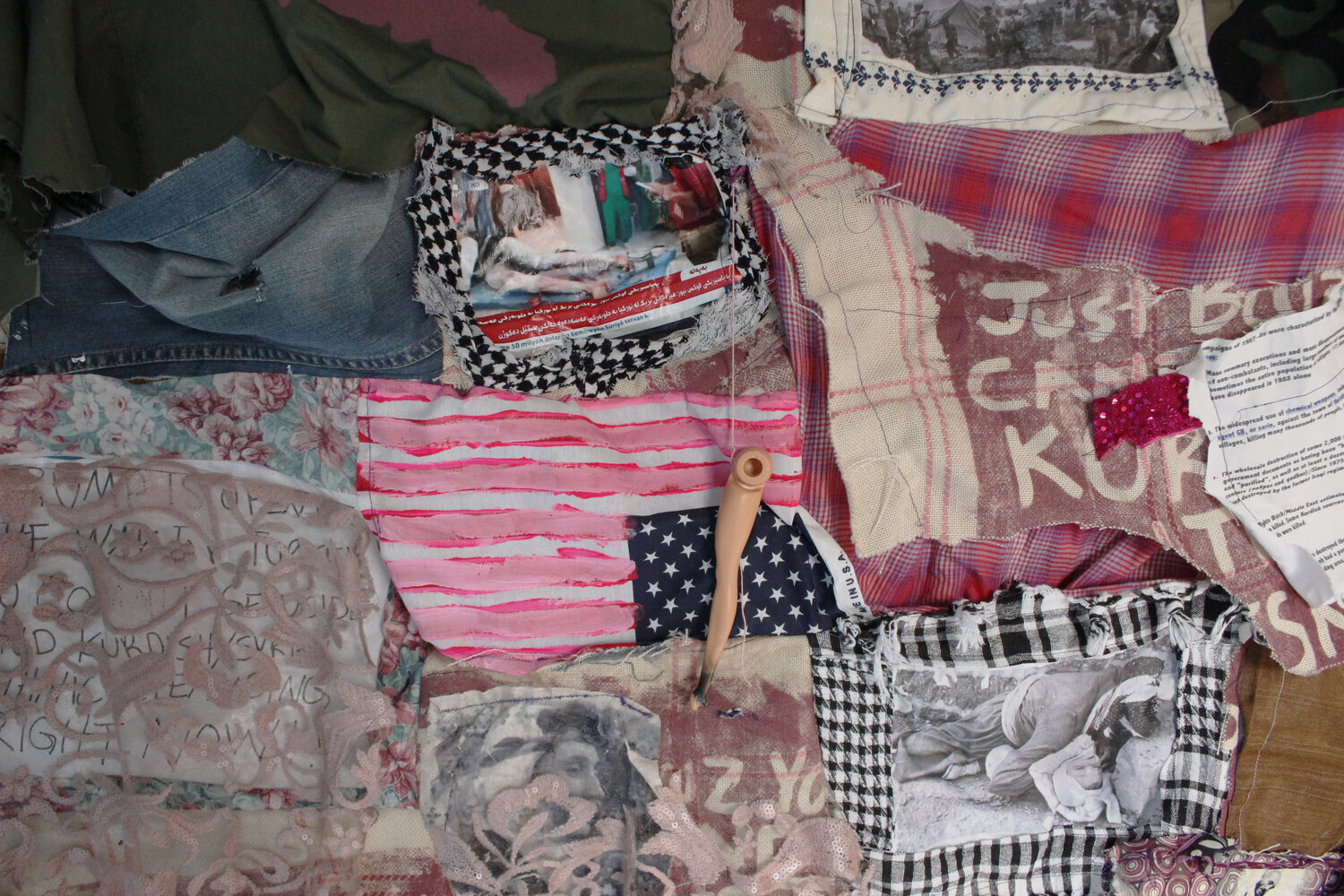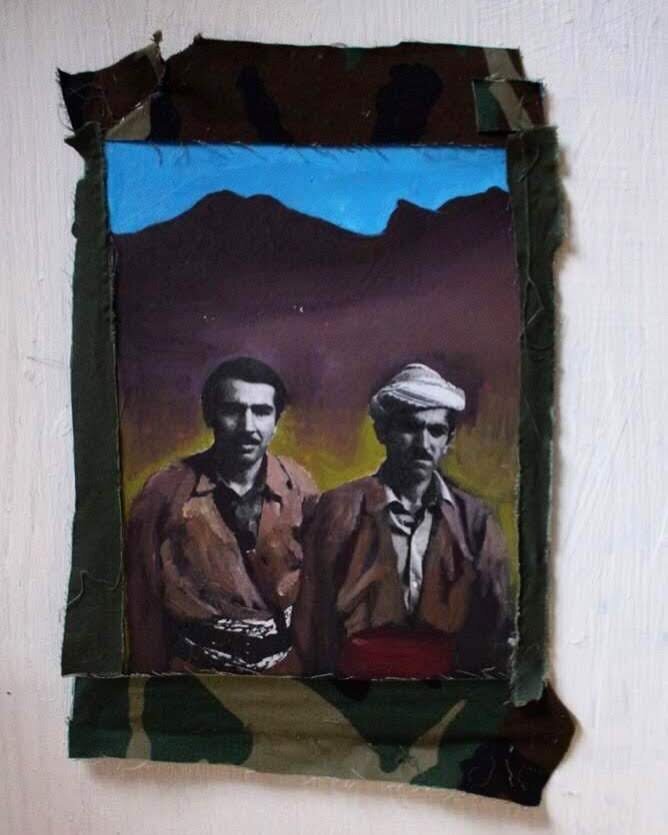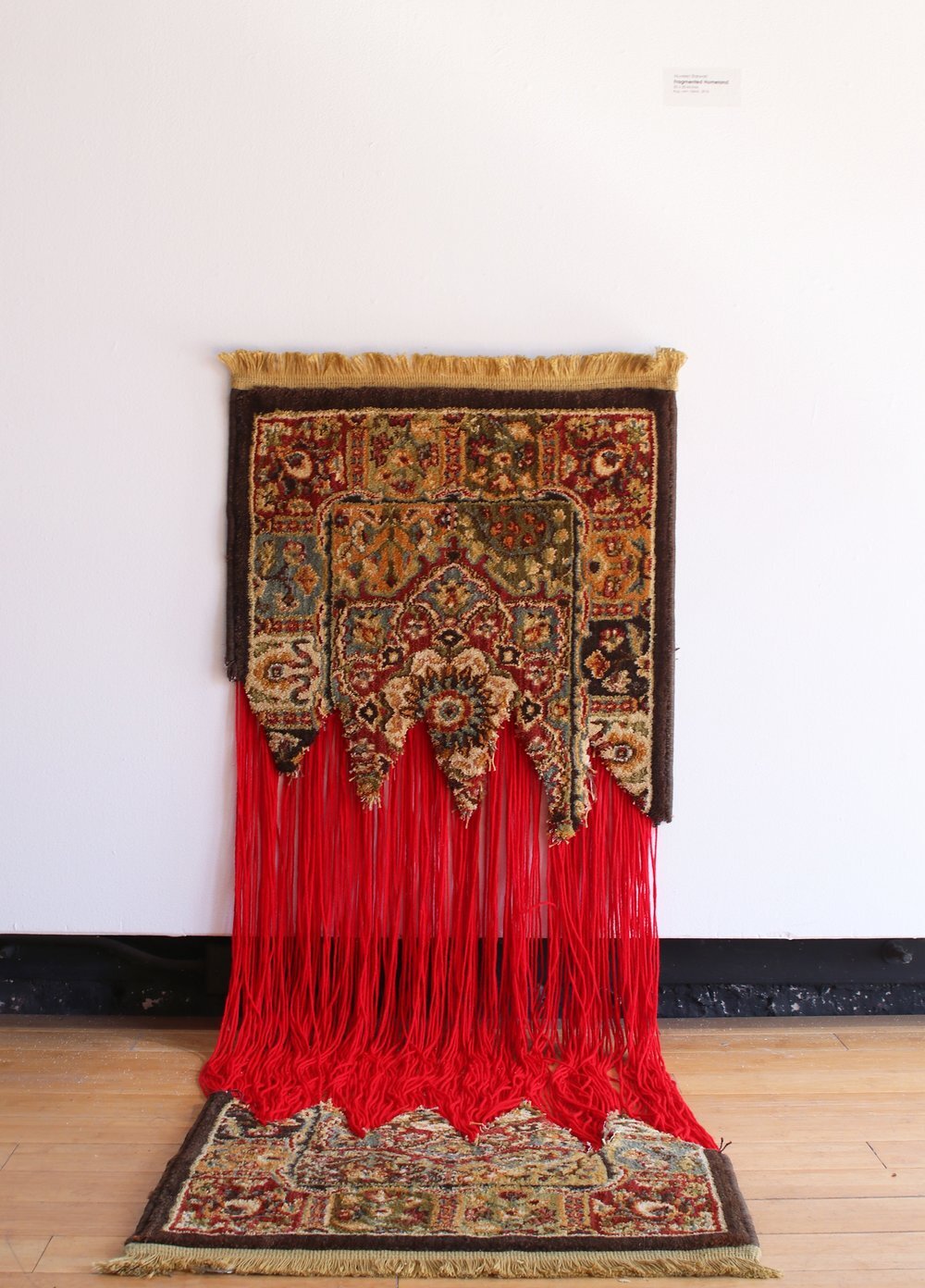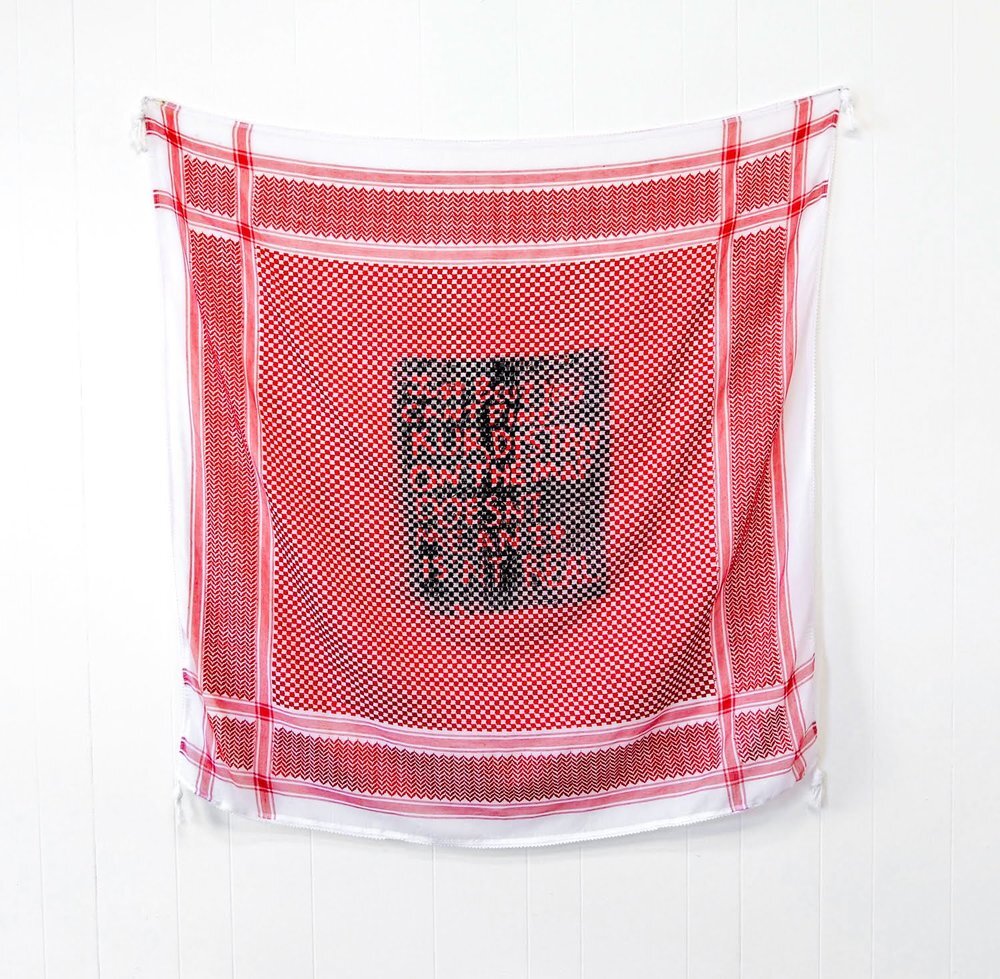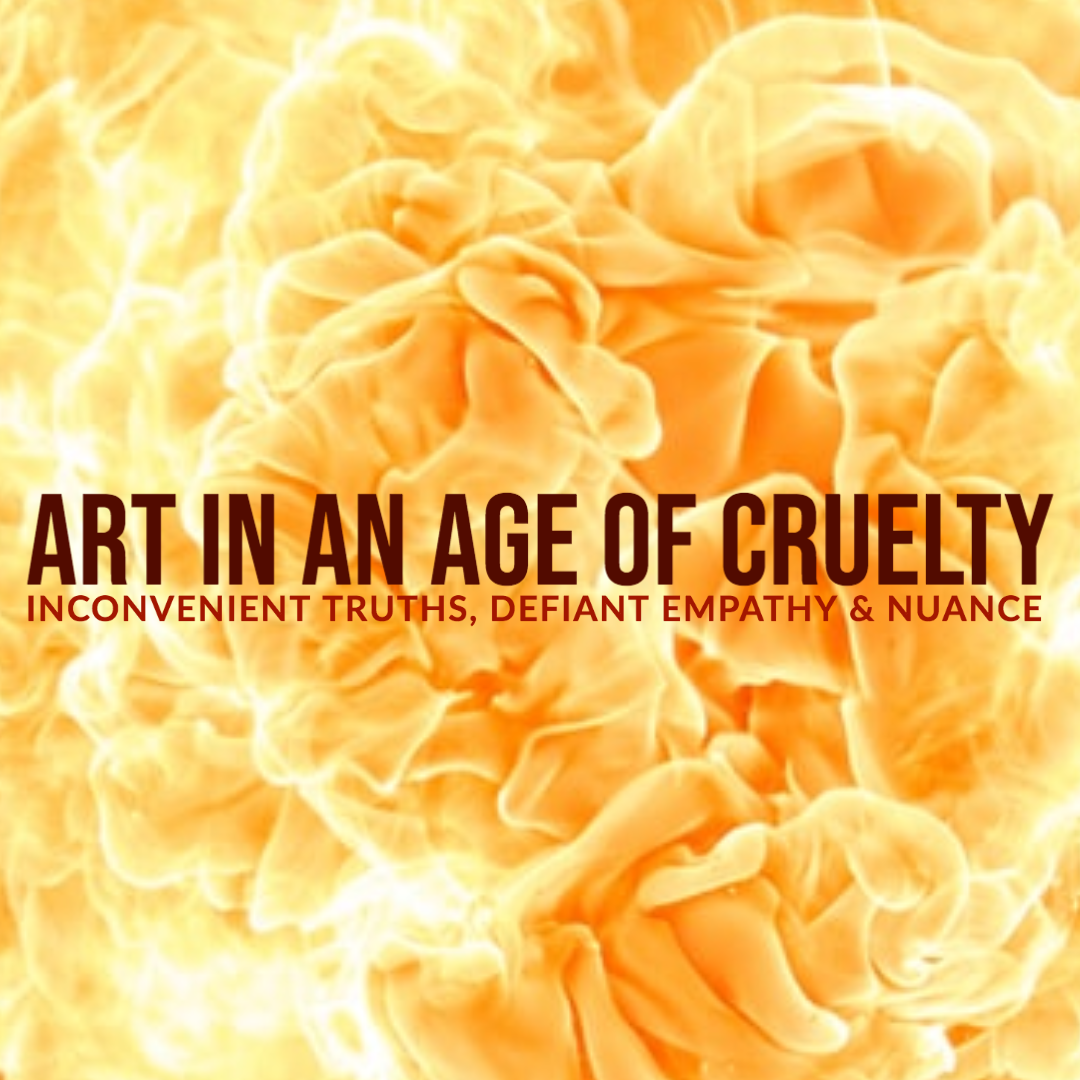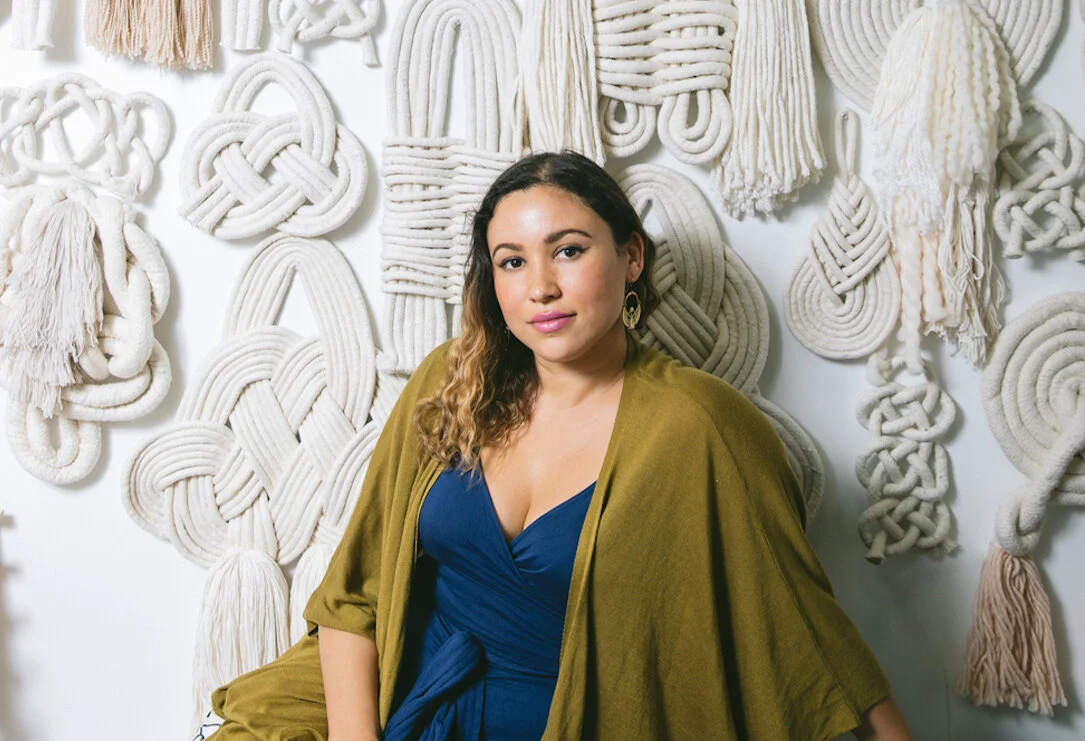Nuveen Barwari
Multidisciplinary artist Nuveen Barwari’s work is a study in contrast. She presents us with artifacts of American pop culture wedged into and consuming those of other cultures. She places Barbie parts alongside images of bomb carnage. She disassembles and rearranges. She works in collages, quilts, assemblage, paint and fiber.
In all of Barwari’s work, there is a deep and very personal exploration of identity, belonging and home. Born in Nashville, Tenn. and growing up between there and Duhok, Kurdistan, Barwari has often felt pulled between two homes, two cultures and two languages. Art became the central vehicle for her to explore it all.
“Living back and forth living between Kurdistan and America and being part of this diasporic community, I feel like I always felt the need to make sense of it all. I was just always looking for an outlet to express this in-between space, I still I want to.”
When we catch up with Barwari, she is gearing up for a gallery opening in Knoxville, where she is in the MFA program at the University of Tennessee. “I think Knoxville is just the right amount of distance away from Nashville,” she laughs. “I don't want to get too far from Nashville, and I didn't want to stay in Nashville either, so it's nice … as if I needed another in between. I feel like I already live in between Kurdistan and America and now I'm living between Knoxville and Nashville.”
Barwari has split much of her life between the States and Kurdistan. “Living back and forth living between Kurdistan and America and just being part of this diasporic community, I feel like I always felt the need to make sense of it all,” she explains. “I was writing a lot … I was just always looking for an outlet to express this in-between space, I still I want to.”
After elementary school in Nashville, she attended middle school and high school in Duhok but finished high school in Nashville. She studied at Tennessee State University, first as an English major, but it wasn’t the right fit. “I dropped out — I ‘took time off.’” She flashes some finger quotes and laughs. “I still knew I wanted a creative path, I just didn't know what that creative path looked like for me. I thought English was, because I was jotting down little short poems, writing short stories and I was like ‘okay maybe this is it,’ but then once I studied it I was like ‘no, it's not for me.’ I went back to Kurdistan in that time off. I went back home and I was there for six months and then I realized I was painting a lot when I was there. And I was like, ‘I'm gonna go back to the States, I'm going to go back to school, and I'm going to study art. And here I am.”
The work that comes from Barwari’s “in-between space,” is alternately very frank and very subtle — sometimes poetic, sometimes prosaic, sometimes simply in your face — always inviting the viewer to challenge their assumptions about place, about home and about where they fit in the world.
Three pieces from 2019 are particularly strong in the elegance of their presentation and symbolic juxtaposition. “Flaming Hot,” “Bacon Is In Everything” and a skateboard upholstered with a Turkish rug are visually striking and contextually complex. “Flaming Hot” is a fan-shaped rug cutout inset with Hot Cheetos wrappers, while “Bacon Is In Everything” is a rug cut into a shape reminiscent of a mandala and inset with McDonald’s sandwich wrappers.
“There's an art to shipping Hot Cheetos to Kurdistan,” Barwari explains. “You’ve got to get the bag… and get a needle, and poke tiny little holes in it so the air comes out, but you don't want to open it because then it'll get stale … You can fit a lot of Hot Cheetos in a luggage. But we can even think about it in the sense of … a larger conversation about that and what else are people lacking, you know? Like real like basic human rights. And resources like running water and electricity.”
Each piece contrasts something indicative of American consumer culture against a visual representation of Middle Eastern tradition and culture. The pieces interrogate where the cultures intersect, where they co-opt, where they clash. “Bacon Is In Everything” in particular reminds us of cultural friction — where does a person observing Muslim dietary laws eat in a nation that really loves its pork?
The fragmentation of the Kurdish state from without and within is at the core of Barwari’s work. “One of one of my favorite artists, a Kurdish contemporary artist named Hiwa K, in an interview with Art 21, he says that being Kurdish is like… because we don't have a country, it's like it's formless. We are formless, we are just constantly cut into all these different pieces. It's definitely a fragmented state, you know. Physically, politically, mentally — it's just very fragmented. Which I think is also something very beautiful about like how [through] years and years, centuries of assimilation and displacement, Kurds still are very resilient. We've held on to our identity and we've held on to our culture, our language through all of it.”
A multidisciplinary approach seem perfectly fitted to such a topic, and Barwari’s practice extends past gallery art to fashion and even podcasting. Her brand Fufu Creations makes and sells t-shirts and bags emblazoned with design vital to Kurdish identity, from the word “Ashti” (peace) in Kurdish to t-shirts calling to free Kurdish journalist Selahattin Demirtas from political imprisonment in Turkey. The brand also sells handmade clothing and tapestries. Nuveen also co-hosts The Newave Podcast with her close friend Pael Abdullah. “I look at that as like a collage too,” Barwari says. “It's just kind of fitting in all the pieces together — we’re kind of trying to bring together the diasporic state. We're trying to bring together all the different Kurds from all over the world and just have a conversation that's very relaxed and unscripted.”
From very small pieces to full installations, each of Barwari’s artworks is freighted with complex relationships and difficult conversations, sometimes couched in metaphor and sometimes straightforward. She easily swings from lampooning the names of Turkish military operations with her “Operation Pink” quilt that lays bare the horrors of military pushes carried out against citizens and juxtaposes it against Barbies and pink gloves, to a banner that simply states “Go Home: If this isn’t my home and that isn’t my home where do I go?”
Although anger and anxiety are present in her work, it isn’t overwhelmed by bitterness or powerlessness. Instead, she infuses it with hope, with wry humor (and the occasional cupcake) and with an open embrace for anyone who feels placeless or “in between.”
“If I can provide a space for someone, even if it's temporary, even if it's just for three minutes, an hour, 10 minutes, and they can walk away feeling hopeful for the future, like they belong or like they're understood and they're not alone — that is enough for me … That’s enough for now.” She smiles. “For now.”


